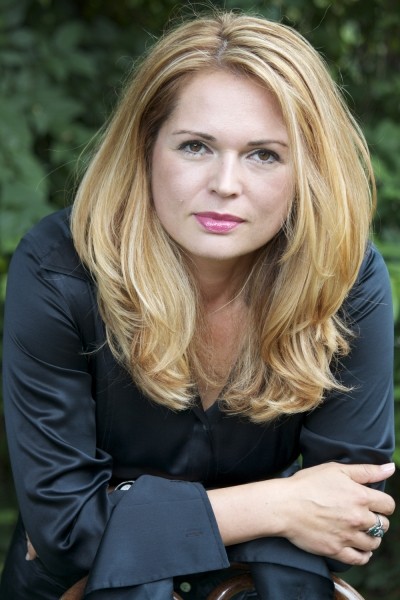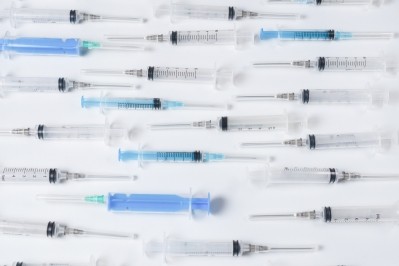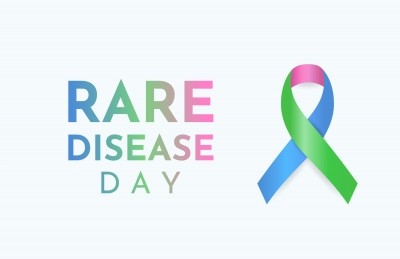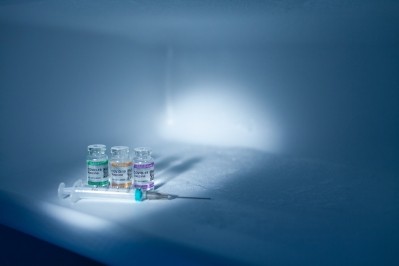How Stella Vnook is 'infusing innovation' into cell therapies with Likarda's technology

Having spearheaded the development of companies focused on CAR-T, CAR-NK, and gene-editing technologies, Vnook encountered challenges with CAR-T efficacy on solid tumors, where NK and T cells struggled to maintain their intended targets.
Now, Stella runs a company which she believes is able to tackle that exact issue.
At Likarda, Vnook leads a team dedicated to addressing the challenges of cell therapy delivery. Likarda's core-shell spherification (CSS) platform technology coats biological therapies in a hydrogel, enhancing the potency of cell therapies and their ability to combat tumors effectively.
While Vnook hails the innovation and progress within the advanced therapies industry, particularly within the CAR-T space, she believes the sector must pay more attention to how these ‘precious’ therapies are delivered.
“As a scientist and someone who has spent time in their career launching new therapies, the industry is very focused on delivering new drugs to market. In cell therapy specifically, we have looked at which cells are better for which tumor type. However, we haven’t spent enough time understanding what makes cells stay on that tumor and this is where Likarda’s technology comes in,” she tells Bio Pharma Reporter at Advanced Therapies Week 2024.
Likarda’s CSS beads are able to create a micro environment for cell therapies to stick onto the target tumor site, typically a particular organ with cancerous cells, for months or as long as required, before the hydrogel disintegrates.
“Our CSS platform cross-links hydrogel and active ingredients and the beads are packed with necessary nutrients to make the cells viable. Cell viability is crucial,” Vnook adds.
Now, the company is working with active drug delivery partners within the cell therapy and large molecule area, utilizing its technology to optimize their therapeutic.
“We don't want to change their construct, we just want to optimize what they already have. If you think about how we used to take tablets, now if you take an advil – it’s probably a soft gel. We want that for cell therapy and large molecules because Likarda’s CSS platform does not require pre-treatment for patients,” Vnook says.
“That is very important because a lot of people are familiar with some drug delivery technologies that may be hydrogel, but they use different ingredients such as alginate – which we do not. That’s an incredibly important element of why our CSS platform is so ideal for cell therapy because there is nothing in it that the body would reject.”
Many companies preparing to take their therapeutic into phase 2 trials are faced with two common obstacles; the efficiency of their drug is simply not strong enough or their delivery system causes side effects or rejection, Vnook explains.
“Then they come to Likarda and say – can you do it differently? We are all about tweaking, optimizing, doing it differently and it is all centered around the patient."
These obstacles are something Vnook is all too familiar with, having managed several biotech start-ups and developed her own therapeutics.
“Several times I have thought – I wish I would have had that technology when I was developing cell therapeutics. The more I said that the more I realised – this doesn’t need to be some best kept secret. The founders of Likarda have spent so long optimizing the platform for seven years and they are brilliant researchers. As passionate as I am about launching therapeutics, which I absolutely am, I feel it's important for me to be here right now because it's crucial that we infuse innovation into how we deliver these very precious active ingredients.
“I want to tell the people spearheading these cell therapy companies about what I didn’t know to help them do it better. We just want to deliver your product better. Then I feel my mission will be complete.”
Specifically, Vnook previously ran a company developing islet-cells to treat patients suffering from type 1 diabetes. However, despite her passion for the technology, she recalls reaching a dead-end and thinking – ‘how is this going to be delivered?’.
“All the technologies I looked at were devices like a pouch that had to be inserted, but then the patient had to be pre-treated to avoid a rejection, and these are very sick patients so that is not what I want to do. The whole point of cell therapy is that it is natural, it doesn’t have such negative side effects and you don’t need to pretreat with steroids.
“What you don't want is to have a rejection process or a side effect profile because of what you use to encapsulate the drug. When I found Likarda, I realised it was really very effective and is a viable option, rather than companies going backwards and reconstructing a new therapy.”
For Vnook, her commitment and drive within the oncology space is also rooted within personal loss and adversity.
“I lost my mother to ovarian cancer and it’s been five years since she’s been gone. I remember when I first showed up at The University of Pennsylvania, my internship was at Temple Fox Chase Cancer Center, and the doctor said we had to put her on cisplatin, a chemotherapy drug. I went – wait a minute – I have been practicing for 20 years and we’re still using that regimen. I had an epiphany. How is it possible with all this money and innovation, all these brilliant people – that we are still using a regimen that I studied 20 years ago?”
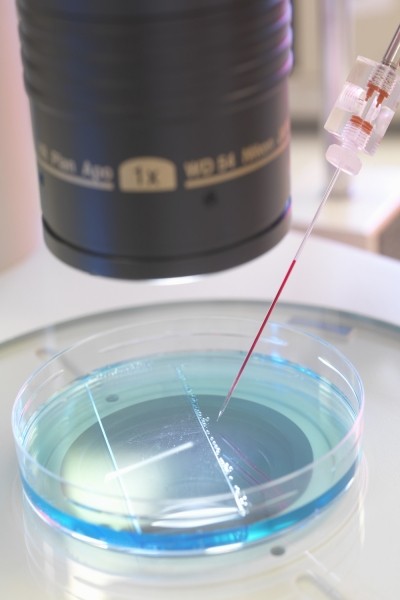
“That is why I am so passionate about driving the change. We must optimize the precious inventions within cell therapy by enabling them to stay longer on the tumor or to be released in a sustained release profile.”
In addition, logistics is a big part of Likarda’s platform, as delivering these advanced therapies can be a ‘huge pain point’, with many developers spending more money on shipping their products than the actual manufacturing, Vnook says.
Likarda has developed an encapsulation technology that allows cells to be transported in dry ice without specialist cryopreservation, a technique originating from animal health – as veterinary clients did not have access to deep freezers.
“Every time we take a sample from an ill patient – we lose about 40% of the cells before ending up with the ultimate product. However, when we apply our hydrogel technology, Likarda is able to significantly reduce all that cell loss because in the hydrogel bead – the cells are protected from the sheer stress. They are also protected from the crystallization because it crystallizes around the hydrogel bead, not inside.
“So we are not only optimizing but reducing the cost. It’s very important to mention, because while it’s brilliant that we have these innovative cell therapy treatments, we have to constantly of the patient cost. It needs to be viable. We don't want to be at the point where there is a treatment for the patient but it's not covered and an average patient is simply not able to afford a $2 million treatment. That would be a very sad day.”
Moving forward, Likarda is poised for further growth – having recently announced that its CSS technology is expanding beyond cell therapy into other large molecule biologics.
This decision was made after ‘identifying industry needs’ and realising the potential market in improving drugs that may have been around for a long time – but are not popular as the side effect profile may not be optimized.
“A drug may be taken through a daily pill or injection and it may require a patient to endure symptoms that go up and down. We can take a very effective therapy that is not optimized, embed it in our CSS platform, and instead of taking it daily, we could potentially make it so it is only necessary to be administered every three or six months,” Vnook comments.
“Instead of having these highs and lows, we actually have data that demonstrates we're able to provide a sustained release of that active ingredient over time. Therefore, we're not spending 10 years and $10 million on a new, very expensive branded product.”
Moving forward, the company is focused on identifying partners that have established logistics and cryopreservation processes – to embed Likarda’s CSS capability into what they already do.
“We want to do it together and collaborate with companies that have large molecules, cell therapies, even small molecule folks that want to do it better and talk about how we can help create a better product.”
“I want to have a way to show them if there is a better path. For companies working within rare conditions or cancers that currently have a high unmet need – ovarian cancer, prostate cancer, uterine cancer – we have to approach things with agility. Going back to the drawing board with another therapeutic and spending another five years of study and money is not ideal. If we could work with those investors and companies to see if we can get there faster together, that's all we can ask.”
